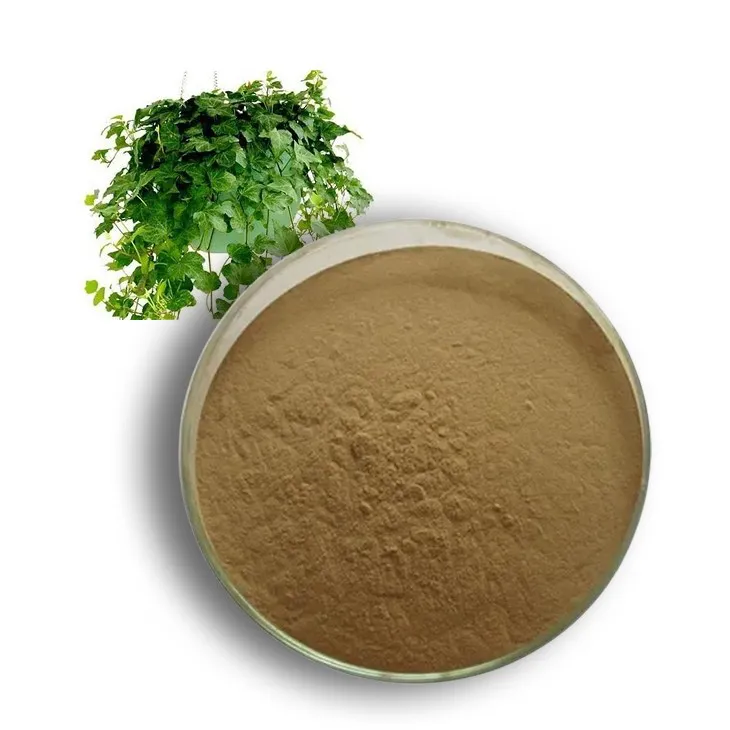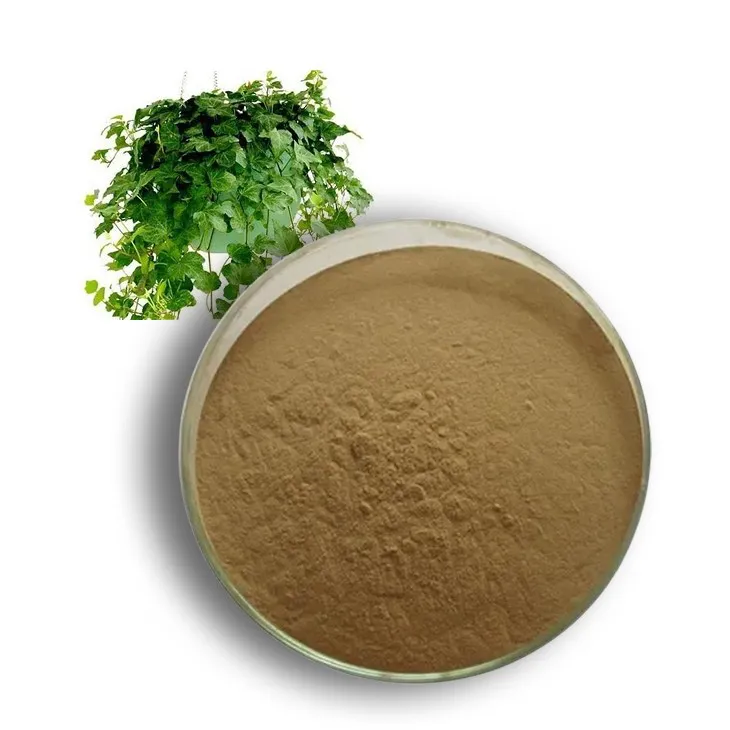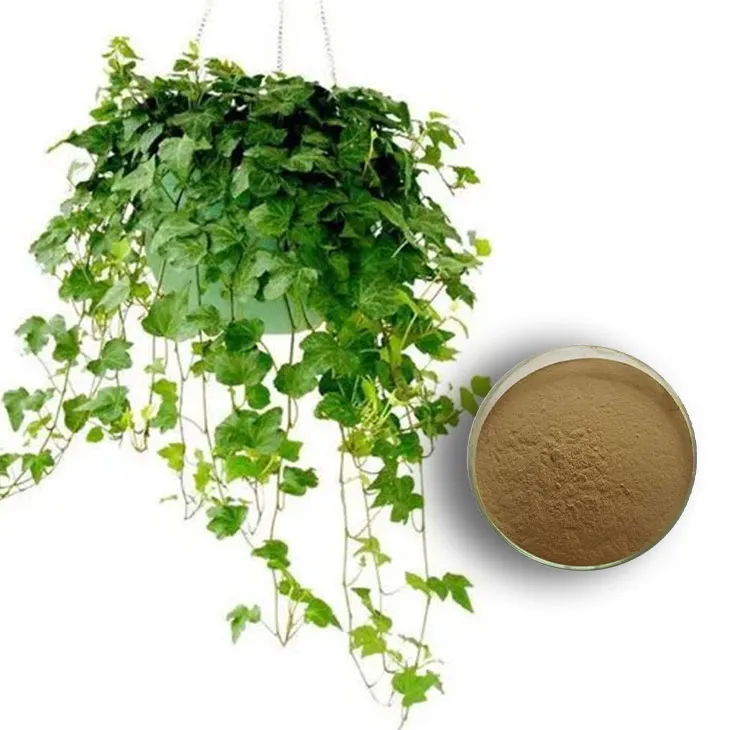- 0086-571-85302990
- sales@greenskybio.com
5 Big Reasons for Using Ivy Extract in the Food Industry.
2024-12-15

1. Antioxidant Capacity
Oxidation is a major factor that causes food to deteriorate. In the food industry, maintaining the freshness and quality of food products is of utmost importance. Ivy Extract offers a significant solution in this regard due to its remarkable antioxidant capacity.
Antioxidants are substances that can prevent or slow down the oxidation process. In the case of Ivy Extract, the antioxidants present within it play a crucial role. They work by neutralizing free radicals, which are highly reactive molecules that can cause damage to food components such as fats, proteins, and carbohydrates.
For example, in the case of fats, oxidation can lead to rancidity, which not only affects the taste and smell of the food but also reduces its nutritional value. By using Ivy Extract, food manufacturers can effectively delay this process, ensuring that the fats in their products remain stable for a longer period. This is especially important for products such as oils, nuts, and processed meats, which are rich in fats.
In addition, the antioxidant properties of ivy extract can also help preserve the color of food. Fruits and vegetables, for instance, often lose their vibrant colors due to oxidation. By incorporating ivy extract into products containing these ingredients, manufacturers can help maintain their visual appeal, which is an important factor for consumers when choosing food products.

2. Antimicrobial Activity
Food safety is a top priority in the food industry, and the antimicrobial activity of ivy extract makes it a valuable ingredient.
Ivy extract has the ability to inhibit the growth of various microbes, including bacteria and fungi. These microorganisms can cause spoilage of food, leading to a shorter shelf - life and potential health risks for consumers.
For example, certain bacteria like Salmonella and Escherichia coli are common pathogens that can contaminate food products. Ivy extract can act as a natural defense against these harmful bacteria. By preventing their growth, it helps to ensure that the food is safe for consumption.
Fungi, such as molds and yeasts, can also be a problem in the food industry. Molds can cause visible spoilage on food surfaces, while yeasts can cause fermentation in products where it is not desired. Ivy extract can be used to control the growth of these fungi, thereby maintaining the quality and integrity of the food.
In addition to preventing spoilage, the antimicrobial properties of ivy extract can also be beneficial during food processing. It can help keep processing equipment and facilities clean by reducing the presence of microbes, which in turn can further improve the overall quality and safety of food products.

3. Flavor Enhancement
One of the exciting aspects of using ivy extract in the food industry is its potential to enhance flavor.
Ivy extract can bring out unique and pleasant tastes in food, adding a new dimension to various recipes. It has a complex flavor profile that can contribute to both sweet and savory dishes.
In sweet applications, such as in baked goods or desserts, ivy extract can add a subtle, earthy undertone that complements the sweetness. It can enhance the overall flavor experience, making the product more interesting and appealing to consumers.
For savory dishes, ivy extract can add depth and complexity. It can be used in sauces, marinades, or seasonings to create a more nuanced flavor. For example, in a meat - based sauce, it can enhance the umami flavor while also adding a touch of freshness.
Moreover, ivy extract can be used in combination with other flavorings to create novel and innovative flavor combinations. Chefs and food product developers can experiment with different ratios of ivy extract to other ingredients to come up with unique taste profiles that can set their products apart in the market.

4. Natural and Clean - label Appeal
In today's food market, consumers are increasingly demanding natural and clean - label products. Ivy extract, being a natural ingredient, fits perfectly into this trend.
The term "clean - label" refers to products that have simple, recognizable ingredients and are free from artificial additives. Ivy extract can replace some of the chemical additives that are commonly used in the food industry for functions such as preservation or flavor enhancement.
By using ivy extract, food manufacturers can market their products as more natural and healthy. This can attract consumers who are conscious about what they eat and prefer products with minimal processing and artificial ingredients.
For example, instead of using synthetic antioxidants or preservatives, a food company can use ivy extract to achieve similar results. This not only meets the consumer demand for clean - label products but also provides a more sustainable option, as ivy is a plant - based ingredient.
Additionally, the use of natural ingredients like ivy extract can also enhance the brand image of food companies. It can convey a message of quality, authenticity, and a commitment to providing healthy and natural food options.
5. Potential Health Benefits
Ivy extract may contain bioactive compounds that have positive effects on human health, which further justifies its use in the food industry.
These bioactive compounds could potentially offer various health benefits. For example, some studies suggest that certain components in ivy extract may have anti - inflammatory properties. Inflammation is associated with many chronic diseases, and incorporating foods containing ivy extract into the diet may help in reducing the risk of such diseases.
There may also be compounds in ivy extract that can support the immune system. A strong immune system is essential for overall health and well - being, and by including ivy extract in food products, consumers may be able to boost their immune function through their diet.
Moreover, if ivy extract can be shown to have beneficial effects on digestion or cardiovascular health, it would make food products containing it even more valuable from a nutritional perspective.
However, it is important to note that further research is still needed to fully understand and confirm these potential health benefits. But the initial findings are promising enough to make ivy extract an interesting ingredient for the food industry to explore.
FAQ:
What are the antioxidant benefits of ivy extract in the food industry?
Oxidation causes food to deteriorate. Ivy extract has antioxidants that can effectively slow down this process, thus maintaining the freshness and quality of food.
How does ivy extract contribute to food hygiene?
Ivy extract has significant antimicrobial activity. It can inhibit the growth of bacteria, fungi and other microbes in food, which is crucial for ensuring food hygiene.
What kind of unique flavors can ivy extract bring to food?
Ivy extract can be used in various recipes to create novel flavor experiences, but specific flavors may vary depending on different food combinations and usage amounts.
Why is ivy extract considered a good substitute for chemical additives?
As a natural ingredient, ivy extract meets the current trend of clean - label products in the food industry. It can replace some chemical additives, making food more natural and healthy.
What are the potential health benefits of the bioactive compounds in ivy extract for humans?
The bioactive compounds in ivy extract may have positive effects on human health. This can make food more valuable from a nutritional perspective, but specific health benefits may need further research.
Related literature
- The Role of Natural Extracts in Food Preservation"
- "Antioxidants in Food: Ivy Extract and Beyond"
- "Natural Antimicrobials in the Food Industry: Ivy Extract Case"
- ▶ Hesperidin
- ▶ Citrus Bioflavonoids
- ▶ Plant Extract
- ▶ lycopene
- ▶ Diosmin
- ▶ Grape seed extract
- ▶ Sea buckthorn Juice Powder
- ▶ Fruit Juice Powder
- ▶ Hops Extract
- ▶ Artichoke Extract
- ▶ Mushroom extract
- ▶ Astaxanthin
- ▶ Green Tea Extract
- ▶ Curcumin
- ▶ Horse Chestnut Extract
- ▶ Other Product
- ▶ Boswellia Serrata Extract
- ▶ Resveratrol
- ▶ Marigold Extract
- ▶ Grape Leaf Extract
- ▶ New Product
- ▶ Aminolevulinic acid
- ▶ Cranberry Extract
- ▶ Red Yeast Rice
- ▶ Red Wine Extract
-
Cocoa Extract
2024-12-15
-
Uridine-5'-monophosphate Disodium salt
2024-12-15
-
Passionflower Extract
2024-12-15
-
Eyebright Extract
2024-12-15
-
Centella Asiatica Extract
2024-12-15
-
Plantain extract
2024-12-15
-
Coix Seed Extract
2024-12-15
-
Almond Extract Powder
2024-12-15
-
Maitake Mushroom Extract
2024-12-15
-
Carrageenan Extract Powder
2024-12-15





















